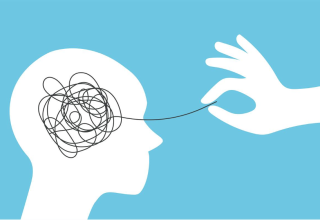Everyone benefits from eating healthy, but for senior health, it is even more important, since they are frequently faced with even more serious problems. For adults 65 years and older, the leading causes of death are chronic respiratory disease, cancer, and heart disease. These conditions can be prevented by a healthy lifestyle in most cases.
The Federal Interagency Forum on Agency reports that older adults have a tendency to develop various chronic health condition, with many of them related to having poor diets. In addition, seniors face higher risks for issues or conditions that relate to bone loss, medicine, and other factors.
Although slowed metabolism and reduced activity levels result in elderly adults needing to consume fewer calories, these individuals still need to have the same levels of nutrients. Nutrients like dietary fiber, vitamin B12, and vitamin D, calcium and potassium are essential for building strong bones and for good health, particularly in seniors. Older adults are the most likely to be lacking in those vitamins since not enough nutrients are provided by their regular diets.
When you get the proper nutrients while you are aging it can help you to:
- Maintain or lose weight
- Sustain or boost energy levels
- Keep nutrition and calorie intake needs in check
- Manage or prevent chronic conditions such as heart disease, diabetes or high blood pressure
The National Institutes of Health reports states that t has been shown in studies that inadequate dietary fiber and poor vitamin B12 absorption increases your risk of heart disease. For older adults, it can also be more difficult to absorb certain supplements, so if you do have a deficiency you should speak to your doctor to see what can be done.
Tips For Preventing Disease and Staying Healthy
-
Track your diet:
Be aware of which foods you never, rarely or often eat. Aim for foods that are nutrient-dense such as lean protein, whole grains, seeds and nuts, fruits and vegetables and beans. For help, you can try out SuperTracker. Also, try to cut your portion sizes down.
-
Be careful about food poisoning:
It is more likely for food-borne illnesses to affect seniors, since as we age our immune systems weaken. Drink water all day long: as you age you might lose your thirst, however, you will need to ensure you drink plenty of water. You can try to drink water in between activities all day, and be careful with your medicine, since certain amounts of water may be required to be taken with them. Also, limit the number of sugary drinks that you consume.
-
Be careful about drug interactions that can occur with food:
There are some medicines that may be harmful when combined with certain foods. To be safe, speak to your doctor and ask about any potential interactions with your diet.
-
Eat healthy snacks:
Your appetite might decrease as you grow older, so it can be helpful to eat healthy snacks. Try eating a piece of fruit or hummus dip and raw vegetables.
-
Find ways of staying active:
It is very important to engage in moderate-intensity physical activities for two and a half hours at least per week. If you are just getting started, start out by stretching or walking for around 10 minutes a day. Speak to your doctor to help you design an exercise program that suits your needs.
-
Make one new change per day:
If it seems intimidating to revamp your entire routine, then take things slow. You can begin by decreasing how much salt you use in your food or eat more foods that are rich in nutrients.
-
Try using spices and herbs:
As you age, you may start losing your taste for food, so for a healthy alternative try changing your meals up and using different herbs or spices.
As a senior, do you have struggles with your health? Learn how to read nutrition labels, and talk with your doctor if you have any concerns.
Facts On Aging and Mental Health
Up to one in five elderly people experience mental health issues that are not part of the normal aging process – with the most common being mood disorders such as depression or anxiety. Most mental health problems do respond to treatment well. Unfortunately, too often senior adults don’t seek out or get the help that they need. Untreated or undiagnosed mental health illnesses can have severe implications for senior citizens and their families.
Mental health issues are not part of the normal aging process. Although older adults might experience numerous loss, lingering deep sadness might be a sign of clinical depression. An anxiety disorder is also not the same thing as regular worries.
In any one year, one out of American adults will have a diagnosable mental disorder. Around six percent of elderly adults have some type of diagnosable depressive illness. One of the most important aspects of physical health is good mental health.
Good mental health greatly contributes to overall well-being feelings. When mental health disorders go untreated in elderly adults it may lead to increased mortality, poorer quality of life, substance abuse and diminished functioning. According to research, it has been shown that mental illness can slow down the healing process from physical illnesses.
Older adults who are healthy can continue growing, thriving and enjoying life! Socializing, walking, and reading are some activities that many people enjoy no matter how old they are. Maintaining social connections and exercising both your body and mind are also great for your mental health.
Among older adults, suicide is a definite risk. The country’s highest suicide rate is with older adults. Individuals 85 years old and older have the highest suicide rates, and those with the second highest rates are those 75 to 84 years old.
The suicide rates among older adults are more lethal. Among those adults who are 65 years old and older, one suicide occurs for every four tries, when compared to one suicide in 20 tries for all of the other age groups.
Consult with a senior care Houston professional if any of the following symptoms are evident:
- Frequent difficulties remembering things
- Consistent problems with concentrating or sleeping
- Consistent worries about health, family or money issues
- Sadness lasting more than two weeks
Author Bio
Since her childhood days, Angela has already admired those people who give primary care to the oldies. Because of her passion towards elders, she decided to take Physical Therapy in college which specializes rehabilitation for the elders. During her free time, she writes in her journal about the different moments she had with the elders that she loves most.
















